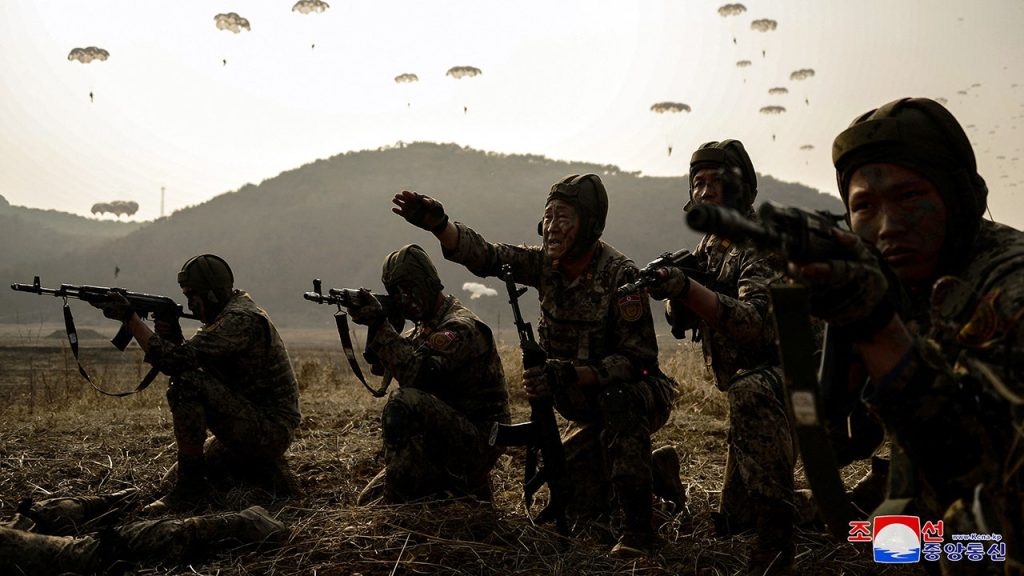U.S. Secretary of State Antony Blinken confirmed that North Korean soldiers in Russia are expected to begin combat operations against Ukrainian troops in Kursk in the coming days. Of the 10,000 North Korean soldiers believed to have been sent to Russia for training, 80% of that force is now in the Kursk region. Ukraine has captured roughly 460 square miles in the region, prompting civilian evacuations and forcing Russia to fight its own war on its own territory. Blinken expressed concern that Russia is training the North Korean troops in artillery and other operations for frontline combat against Ukraine.
During a joint press conference with Secretary of Defense Lloyd Austin and their South Korean counterparts, Blinken stated that Russia has been training the North Korean troops in artillery and other combat operations, indicating an intention to use them in frontline operations against Ukraine. The Russian military has provided uniforms and equipment to the North Korean troops, a move that Blinken described as a sign of weakness on Putin’s part. He also highlighted record high casualty rates among Russian troops in eastern Ukraine, with over 1,200 casualties reported daily – the highest since the war began over two and a half years ago.
The deployment of North Korean troops to Russia represents the first time in 100 years that foreign troops have been invited onto Russian soil. When asked about the ability of Ukrainian forces to hold onto territory in Kursk, Austin expressed confidence that they could continue to do so, citing the high casualty rates among Russian troops as a key factor. Blinken announced that additional security assistance will be provided to Ukraine in the coming days to support their efforts against Russian aggression.
Following the confirmation of North Korea’s longest ever intercontinental ballistic missile (ICBM) launch, Austin stated that he did not believe Russia had any involvement in the test. However, he warned that North Korea’s partnership with Russia is likely to embolden the country to engage in further provocative actions. Austin stressed the importance of closely monitoring North Korea’s activities in light of its partnership with Russia, acknowledging the potential for increased aggression from the regime in response to its collaboration with Russia.
The joint press conference highlighted concerns about the escalating conflict in Ukraine, the involvement of North Korean troops in combat operations, and the implications of North Korea’s missile test. Blinken emphasized the need to support Ukraine in the face of Russian aggression, while Austin underscored the importance of monitoring North Korea’s behavior closely. The alliance between North Korea and Russia is seen as a destabilizing factor in the region, with both countries facing international scrutiny for their actions. The ongoing conflict poses a significant challenge for regional stability and global security.


